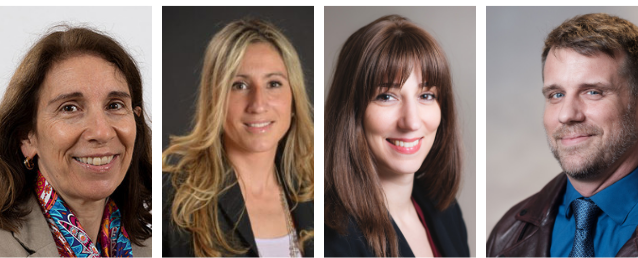
Source: Royal College of Physicians and Surgeons of Canada
For some victims of human trafficking in Canada, interactions with the health care system may be their only chance to break free. Getting help might start with a guarded patient accompanied by someone answering all questions, a nurse noticing a cigarette burn or a doctor seeing the “branding” marks traffickers often have tattooed on discrete areas of their victim’s body.
That’s why officers from the Sexual Exploitation-Human Trafficking Investigation Unit of the Montreal Police Department are teaming up with medical educators from McGill University for a panel discussion at the 2019 Simulation Summit taking place Nov. 7-8 in Winnipeg. The panellists hope that sharing their insights and expertise with simulation educators from across Canada and other countries will equip more frontline health professionals with the competencies and awareness needed to make a difference in a victim’s life.
The Simulation Summit is a unique interprofessional medical simulation education conference. Through networking and both formal and informal learning opportunities, the goal of the Royal College Simulation Summit is to provide a venue for novice and seasoned simulation educators to share ideas, explore cutting-edge research and accelerate best practices in simulation-based education for health professionals. That includes using simulation education to help sex trafficking victims.
“About 80 per cent of victims who are trafficked will enter the health care system at some point in their lives and almost zero are detected,” says Françoise Filion, assistant professor at McGill University’s Ingram School of Nursing. “Staff don’t have the skills to recognize and provide care to sex trafficking victims.”
A few years ago, Professor Filion wanted her undergraduate students to be able to detect early signs of sex trafficking or sexual exploitation, so she started inviting police officers and survivors into the classroom. The feedback from students was so positive, it inspired her to work with Loïc Simard-Villeneuve, standardized patient educator at McGill’s Steinberg Centre for Simulation and Interactive Learning, to create a scenario for nursing students on sex trafficking. As Mr. Simard-Villeneuve explains, “These simulations allow students to learn and practice communications skills in a safe environment so that if they do encounter victims in the clinical setting, they will be better equipped to detect and help them.”
From the policing side, the Simulation Summit panel includes officers Josée Mensales and Diane Veillette, co-founders of a survivor program that helps victims and families cope with situations involving sexual exploitation.
“We built training sessions about who are the traffickers, who are the victims and how do we tackle it,” says Officer Mensales. “And we tried to install a better safety network for survivors. We wanted to give them a voice and make our work as police officers a little more humanized.”
Officers Mensales and Veillette say they feel privileged to be able to speak with the Simulation Summit audience about their work and the important role of health care professionals in helping victims.
“Health care visits are often the only situations where victims are without the trafficker for a time when they can possibly speak up,” says Officer Mensales. “So it’s important for health care professionals to have the tools to detect this early on.”
Human trafficking is the fastest-growing crime in Canada, she adds, with a lot of money changing hands. Traffickers often go from province to province to elude detection.
Panellist Niki Soilis, education manager at the Steinberg Centre, says having police alongside health care educators at the Simulation Summit is important.
“People need to understand the law enforcement angle,” she says. “The Survivor Program run by Officers Mensales and Veillette uses a survivor-centered approach. They are focused on helping the victims, and their services have evolved over time to help each person on their journey.” That includes working closely with LGBTQ+ and Indigenous communities. Fifty per cent of victims of sex trafficking in Canada are Indigenous women.
“Historically the approach to health care in Canada has been bio-behavioural,” says Ms. Soilis, “with not enough attention being paid to the social determinants of health.”
“I’m hoping that people will look at simulation as an opportunity to address our social responsibilities, to look at the things that are really happening in our community that we are not talking about.”
“That person may have a UTI, but they also have a life story.”
The theme of this year’s conference is Simulation at the Forks: Diversity becomes Mainstream.
October 25, 2019
